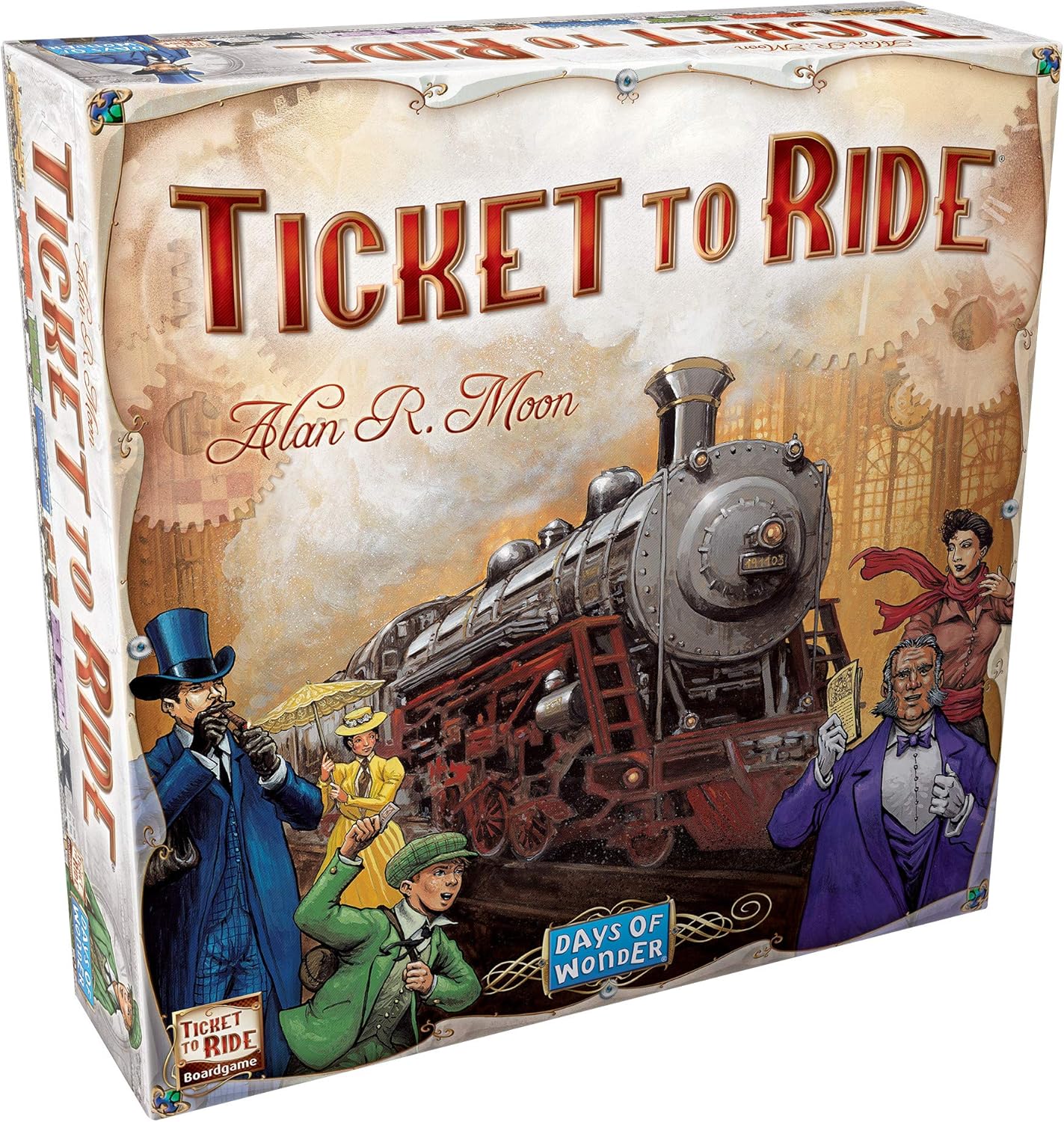Level Up Your Family: The Power of Game Nights for Building Lasting Bonds
Have you ever experienced the joy and laughter of game nights with your family? Those moments of friendly competition, shared excitement, and endless fun? Did you know that these cherished family game nights offer more than just entertainment?
Nowadays, when screens dominate our attention and schedules are jam-packed, family game nights are essential. Think of them as a weekly ‘power-up’ for your family; they strengthen your bond and teach everyone life skills. Most importantly, they’re your place to connect, communicate, and create cherished, lasting memories that you’ll look back on with a warm heart.
I. Cognitive Benefits: Sharpen Young Minds (and Old Too!)
Games aren’t just for fun and laughter; they’re also a great way to boost cognitive skills. It’s like sneaking in a brain workout while having a blast; the sense of accomplishment that comes with improving cognitive skills can be truly gratifying and inspiring!
A. Sharpening Minds
- Problem-solving and Strategic Thinking
Many games require strategic thinking, from classics like chess and checkers to modern strategy games like Settlers of Catan.
A study published in the Journal of Experimental Child Psychology 2014 shows that playing board games helps kids improve their spatial reasoning skills.
As well as conquering the board, these skills are helpful in real life, too! If your kid plays Ticket to Ride often, he can solve tricky school problems!
- Memory & Attention Span
In a world where distractions are everywhere, it can be challenging to stay focused. Many games for kids and adults require players to remember rules, track information, and work together.
Playing memory-based games could increase the size of the hippocampus, the part of the brain responsible for memory, according to a study by the University of Wisconsin-Madison.
A fast-paced card game like Uno or Memory can help sharpen those mental muscles and improve concentration, which will help your kids in school and help you remember where you put your keys!
- Creativity & Imagination
Family games can unleash imagination, whether used to create fantastical worlds in Minecraft or weave imaginative stories in role-playing games.
According to Stuart Brown at the National Institute for Play, getting to experiment, take risks, and explore new possibilities through play helps us become creative and innovative. Be bold and think outside the box during game night – you’ll see what you come up with!
B. Learning Through Play
- Language & Vocabulary Development
In addition to expanding vocabulary and improving language skills, games like Scramble, Boggle, and even simple card games can make learning fun.
The National Literacy Trust found that playing word games extensively improved children’s reading comprehension. To succeed in life, we should understand and be able to use language effectively.
- Numbers & Math
Playing Monopoly, Yahtzee, or Chutes and Ladders helps kids learn number sense and math concepts. According to an Early Childhood Research Quarterly study, kids who play board games based on numbers improve their math skills significantly. Kids learn math unknowingly as they count spaces, manage money, and score.
- Cultural & Historical Knowledge:
Players can learn about different cultures and perspectives with historical board games or trivia games. A game like Timeline or Civilization lets you experience historical events and learn about other civilizations in an interactive and engaging way. Learning like this is so much more memorable than just reading a textbook!
II. Social & Emotional Benefits: Building Strong Bonds and Happy Hearts
Aside from the cognitive boost, family game nights are a great way to connect, communicate, and grow together.
A. Strengthening Bonds:
- Quality of Time & Shared Experiences:
Our busy lives can make it hard to find time for family. Family game nights provide a chance to unplug from distractions, engage in shared activities, and build memories. According to a Family and Work Institute survey, families with shared activities are happier and have stronger family bonds. We connect with our loved ones and feel together when we share these experiences.
- Open Communication & Active Listening:
The family games offer an excellent platform for open communication and active listening, whether you’re discussing strategy, negotiating trades, or just having a laugh. According to Dr. Gary Chapman, author of The Five Love Languages, investing quality time and attention is crucial to building solid relationships. Game nights are a great way to practice.
- Cooperation & Trust:
It’s common for family games to involve working together toward a common goal, like Ticket to Ride or Clue. According to a study published in the Child Development Journal, children who participated in cooperative play with their families showed higher levels of empathy and prosocial behavior. When it comes to building healthy relationships and navigating social situations, these skills are essential.
B. Developing Emotional Intelligence:
- Emotional Management:
You can use family game night to practice emotional management, win and lose gracefully, and become resilient when setbacks are thrown. We remember when your youngest threw the Monopoly board across the room. According to psychologist John Gottman, emotional regulation is critical to healthy relationships. Game nights are a great time to practice these skills.
- Perspective-taking & Empathy:
Many games make you think about other people’s perspectives and understand their motivations. Role-playing games, for example, let players play different characters with different motivations and goals, which can help them develop empathy and understand their family members better. So they’ll think about other people’s feelings and thoughts instead of their own.
- Perseverance & Resilience:
Overcoming challenges helps build resilience and perseverance, whether you’re strategizing to win a match or recovering from a loss. According to psychologist Angela Duckworth, it’s been proven that grit, the combination of passion and persistence, is a crucial predictor of success in life. Game nights help cultivate that trait.
III. Practical Benefits: Unplug, Reconnect, and Recharge
Our technology-driven world needs family game nights to unplug from screens and connect.
A. Creating Family Traditions & Rituals:
- Routines for Game Night:
It’s fun to have family game night regularly, whether weekly or monthly. It’s something everyone looks forward to. Kids must know that Friday night is game night because routines and rituals provide stability and predictability.
- Excitement & Anticipation:
Choosing games, setting up the game board, and making snacks can be fun and engaging. Involving everyone in the process can increase buy-in and make game night even more special. Have a rotating schedule for who chooses the game each week, or create a playlist for game night.
- Sharing memories:
This shared experience becomes cherished memories that last a lifetime – the laughter, the friendly competition, the epic victories (and maybe even a few dramatic defeats!) Investing in experiences like family game nights creates many memories that will enrich your life for years. Research by psychologist Daniel Kahneman shows that people remember experiences more vividly than material possessions.
B. Reconnecting & Unplugging:
- Digital Distractions & Screen Time:
You can put away your phones, tablets, and other devices during family game nights to talk face-to-face. Screen time has been linked to sleep problems, attention issues, and anxiety, so game nights offer a healthy alternative. They promote real-life interaction and connection.
- Interacting face-to-face:
The family game night is a great way to engage in meaningful conversations, read each other’s expressions, and improve nonverbal communication skills. A game night is a great way to practice nonverbal cues like facial expressions, body language, and tone of voice and develop emotional intelligence.
- Tech-free zone:
Make your game night space a tech-free zone. It helps everyone focus on the present moment and fully engage with each other. Put your phone in a basket, silence your notifications, and don’t check social media. Without the constant buzz of technology, you’ll enjoy the game (and each other’s company!) even more.
IV. Choosing the Right Games: A Game for Everyone
It’s easier to choose the suitable game for your family game night when there are many board games, card games, and other options. But don’t worry, there’s a game for every family! Think of it like selecting a movie – consider genre, age, and everyone’s interests.
A. Age-appropriate Games for Every Stage:
- Games for Young Children (Preschool & Early Elementary):
Try games with simple rules, bright colors, and engaging themes like Candyland, Chutes and Ladders, or Zingo! These games help kids recognize colors, count, and take turns. Plus, they’re fun! Keep the games short and sweet to keep their attention span.
- Games for Older Children & Teens:
Ticket to Ride, Settlers of Catan, or Codenames are great games to introduce as your kids grow. They challenge players to think ahead, plan their moves, and negotiate with others. Introduce more complex games that require strategic thinking and critical thinking. Be bold and let your teens choose the games – they might surprise you with how sophisticated they are! They also provide opportunities for social interaction and friendly competition.
- Games for the Whole Family (Multi-generational):
There’s no easy way to find games that appeal to everyone, from grandparents to toddlers, but you can! Choose easy-to-learn games that have enough depth to keep everyone engaged. Classics like Scrabble, Pictionary, or even a deck of cards for Hearts are always good picks. People of all ages love these games because they’re fun, engaging, and accessible.
B. Game Types & Their Benefits:
- Cooperative games:
Often, we’re told we need to compete, so cooperative games like Pandemic or Forbidden Island are a refreshing alternative. These games foster teamwork, communication, and problem-solving skills, as well as the importance of collaboration and collective effort. It’s also incredibly satisfying to win together!
- Competitive games:
It’s fun to have a little healthy competition! Games like Carcassonne or 7 Wonders offer strategic challenges and friendly rivalry. Players can learn skills like planning, negotiation, and risk assessment in these games. But don’t worry about winning, have fun. After all, this is just a game.
- Imaginative & Creative Games:
You can express yourself in new and exciting ways with games like Dixit and Telestrations, which encourage storytelling, drawing, and imagination. As well as helping players tap into their creativity, these games can lead to hilarious moments and lasting memories. Who knew your grandma was so talented?
V. Making Game Night a Success: Tips and Tricks for a Fun-Filled Evening
Get ready for your family game night adventure! Here are some tips to make it fun and successful:
A. Setting the Stage for Fun:
- Welcoming & Comfortable:
Create a cozy environment at home by clearing a space, gathering around a table, dimming the lights, and creating a comfortable atmosphere. Light some candles, play relaxing music, and ensure everyone has a place to sit comfortably. Make it like a mini-vacation at home. You’ll have more fun and relax if the environment is inviting.
- Snacks & drinks:
How fun would a game night be without some yummy treats? Ensure everyone stays hydrated and fueled with snacks (Popcorn, anyone?) You can have a themed game night with snacks matching. Or let everyone pick their favorite treat. Just make sure there’s enough.
- Distraction-free:
Turn off the TV, put away the phones, and tell everyone this is family time. Unplug from the world and focus on connection. Set a “no phone zone” and encourage everyone to be present.
B. Keep it Fun & Engage
- Focusing on Fun, Not Winning:
Remember that family game night is about connecting and having fun together. Winning is secondary! Encourage a spirit of playful competition and good sportsmanship. Celebrate everyone’s great moves, encourage, and don’t put anyone down. Creating a supportive, positive environment where everyone feels comfortable is essential.
- Sportsmanship & Participation:
Ensure that everyone feels valued and included. If you have younger kids, play a cooperative game where everyone works together toward the same goal. Encourage older kids and teens to teach their siblings and grandparents the games. It helps them become more responsible and leadership-oriented.
- Modifying & Adapting Games:
Feel free to adjust rules or modify games. If you have young kids, shorten the game or simplify the rules. Add new challenges or variations to keep things fun for older kids. It’s all about making everyone’s experience fun and engaging.
VI. Game Night Bonus Round: Taking it to the Next Level
Take your family game nights to the next level with these ideas:
- Theme Nights: Pick a theme and go with games, snacks, and decorations that fit it. You can do a “Pirate Night” with games like Forbidden Island and snacks like gold doubloons. You can do a “Medieval Feast” with medieval games like Carcassonne.
- Tournament: Have a tournament with multiple rounds and a grand prize. This will add more excitement and competitiveness to your game night.
- DIY Games: Get creative and design your own! This can be a fun activity for the whole family and an excellent way to personalize your game night experience.
- Outdoor Games: Take your game night outside! Enjoy the fresh air and sunshine while playing classic lawn games like croquet or badminton.
Let’s Recap
By having family game nights, you can boost your brainpower, build strong bonds, create lasting memories, and reduce your screen time. So choose a game, gather your family, and let’s play!
Are you feeling adventurous? Share your favorite family games and game night traditions in the comments!
FAQs
This is the most common question people have. They want to know why they should bother setting aside time for games. You can highlight the key benefits: stronger family bonds, improved communication, cognitive skill development (problem-solving, memory, etc.), and stress reduction.
With so many options available, it can be overwhelming! Suggest considering the players’ age range, interests, and the desired level of complexity. Recommend specific games for different age groups and playing styles (cooperative, competitive, creative).
This question often comes from parents wanting to keep everyone engaged and happy, especially those with varying ages and interests. Emphasize the importance of choosing suitable games, creating a fun atmosphere, focusing on fun over competition, and being flexible with rules.
There’s no one-size-fits-all answer, but it’s essential to establish a consistent routine. Start once a week or bi-weekly and adjust based on family schedules and preferences.
This can be a challenge, but it’s often a matter of finding suitable games. Suggest starting with simple, easy-to-learn games and gradually introducing more complex options. Also, emphasize the importance of creating a fun and relaxed atmosphere where everyone feels comfortable participating.
Related Posts


































































































